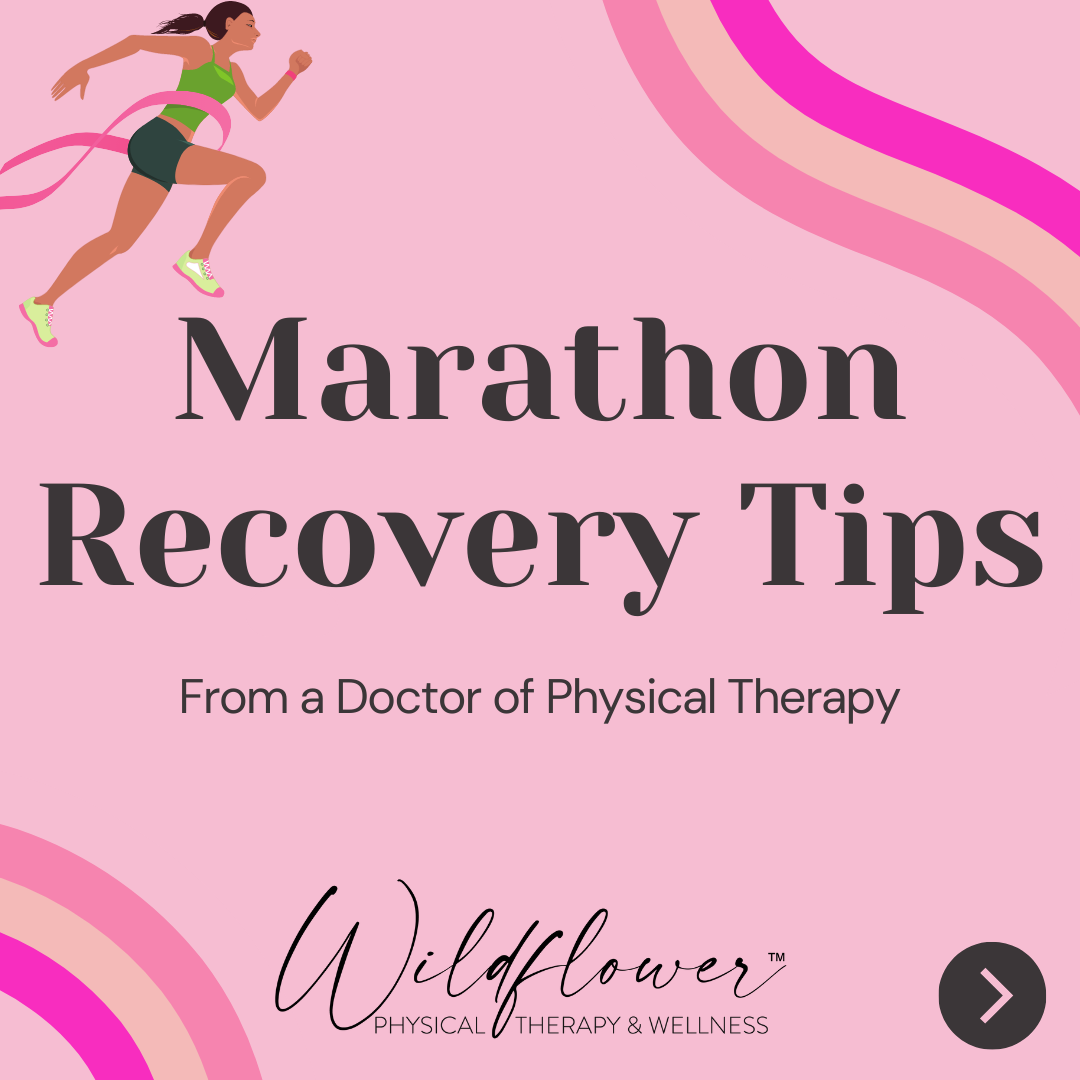Tips for Recovery After a Marathon
Post-race recovery is essential for healing! A marathon is incredibly taxing on your body and you will need to actively work to restore your body to tip top shape.
Refueling Your Body
First and foremost, make sure to replenish your body with fluids and food in order to restore balance in your system. During your race, you are going to lose a lot of fluids through sweat so it is essential to drink sports drinks or water with electrolytes in it to replenish the fluids lost.
If you don’t rehydrate, your body will probably let you know it by increased muscle cramps, fatigue, poor sleep, etc.
In terms of refueling post-marathon, you will want to make sure to eat a nutritious meal containing lots of protein, carbs and fats in order to replenish your body’s stores. It is estimated that you can burn up to 2500 calories in a marathon, so don’t be afraid to eat up! It is also normal to have a reduced appetite following the race, so ease into it if you need to.
If you are able to replenish your body with both fluids and food post-race, you are likely to experience reduced muscle soreness, faster recovery, better sleep, and even improved immune function!
Physical Rest
For the next week or so after your marathon, optimize sleep and allow yourself to physically rest. Take short walks as needed to get through your day, but avoid strenuous exercise as you heal.
In the week or so after the marathon, your muscles will be working hard to repair themselves after the stress they endured getting you through all those miles! You will want to listen to and honor your body in this time and be patient with it as it heals.
Reduce Inflammation
Cold therapy, compression, dry needling, massage, cupping, and gentle guided stretching and mobility can help to reduce inflammation, restore optimal blood flow for healing of the tissues, and reduce pain.
At Wildflower Physical Therapy & Wellness, we can help you expedite recovery and optimize blood flow and healing during these early recovery stages after your race! Book a FREE phone consult today to chat with one of our Physical Therapists to see if we are a good fit for you.
Lastly, make sure to give yourself a huge pat on the back for your physical accomplishments! It's not just the 26.2 on race day, it's the consistent months of miles and mental stamina to get to this point. You should be proud.
These recommendations will vary greatly based on physical activity level, if injuries are present, and other personal factors, so for the most individualized advice please reach out to your Physical Therapist!

